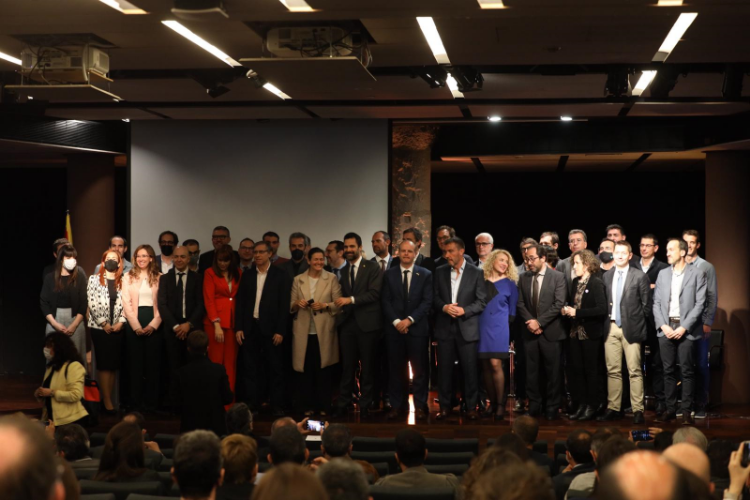The ICT-Tourism Cluster was officially incorporated during an event held on 28 March in Gaudi’s famous “La Pedrera” building in Barcelona, and was chaired by the Minister of Business and Labour, Roger Torrent i Ramió. The 24 companies and agents in the sector that make up the new entity, including IQS, attended the presentation.

The ICT-Tourism Cluster was officially incorporated during an event held on 28 March in Gaudi's famous "La Pedrera" building in Barcelona, and was chaired by the Minister of Business and Labour, Roger Torrent i Ramió. The 24 companies and agents in the sector that make up the new entity, including IQS, attended the presentation.
The aim of the new cluster, supported by the Department of Business and Labour through ACCIÓ (the Catalan Agency for Business Competitiveness) and the Directorate General of Tourism, is to improve the competitiveness of companies in the sector, enhance internationalization, attract talent, accelerate the use of new technologies, and make Catalonia a benchmark in tourism technology. Tourism is a driving sector of the Catalan economy that accounted for 12% of GDP and 14% of employment prior to the pandemic. The tourism ecosystem in Catalonia is made up of around 78,000 companies that also support other complementary sectors such as commerce or dining, among many others.
The 24 founding members of the new ICT-Tourism Cluster include IQS, Prestige Software, The Hoteles Network, Voxel, Beroni, Amadeus, Vueling, CETT, el Gremio de Hoteles de Barcelona, el CoE in Tourism Innovation de Eurecat, GNA Hotel Solutions, SIRT, Catalonia Hotels, The Net Revenue, Sekuenz, Efimatica, Persapia, James & Rita, Tourknife, Engisoft, Vivential Value, eMascaró, Diskover Catalonia, and Viajes para ti.
In total, the companies, technology centres, and agents that form part of the group have a turnover of 253 million euros and employ 1,700 people directly linked to the application of ICTs to their businesses.
The founding of the cluster is the culmination of three years of work from the starting point of its formation in 2019. Since then, an analysis of the sector was conducted to understand its value chain, identify the key players, and determine its main strategic challenges.
Technological trends in a key sector in Catalonia
The creation of this new cluster is part of the growing digitalization of tourism with the introduction of new technologies such as greater personalization and segmentation of services, the rise of responsible tourism and travellers having a greater awareness of sustainability, and the growing value of tourists in terms of specifications.
In this sense, the new entity will work to incorporate emerging technologies in the sector, such as big data, that will play an increasingly important role in the sector and facilitate predicting consumer behaviour, thus providing greater personalization of services. In addition, artificial intelligence improves customer service and care through solutions such as facial recognition and voice commands. In turn, IoT and virtual and augmented reality encourage greater dynamism and diversification of traveller experiences by facilitating interaction with the environment. Finally, blockchain and cybersecurity technologies facilitate the management and storage of large volumes of data.










